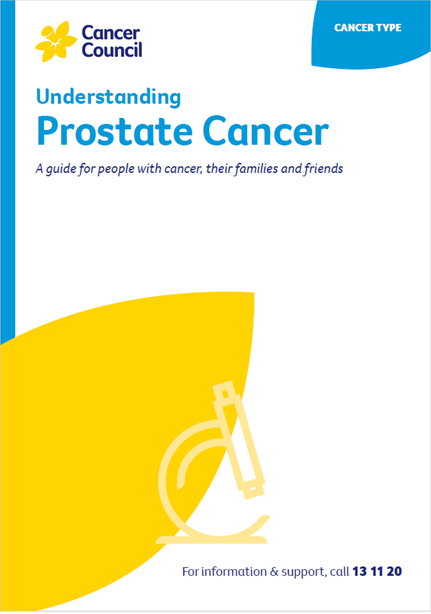- Home
- Prostate cancer
- Diagnosis
- Tests
- MRI scan
MRI scan
An MRI (magnetic resonance imaging) scan uses a powerful magnet and radio waves to build up detailed pictures of the inside of the body. A specialised MRI called mpMRI (multiparametric magnetic resonance imaging) is used if a doctor suspects prostate cancer. It combines the results of a number of MRI images to provide a more detailed image.
Your doctor may suggest an MRI to see if you need a biopsy or to guide the biopsy needle to a specific area of the prostate. It may also show if cancer has spread from the prostate to nearby areas.
Before the scan, let your medical team know if you have a pacemaker or any other metallic object in your body, as the magnet can interfere with some pacemakers. Newer pacemakers are often MRI-compatible.
Before having scans, tell the doctor if you have any allergies or have had a reaction to contrast (dye) during previous scans. Also let them know if you have diabetes or kidney disease.
Having an MRI
| Using contrast dye | Sometimes a dye (called contrast) is injected into a vein before the scan to help make the pictures clearer. |
| The MRI process | You will then lie on an examination table that slides into the scanner, which is a large metal cylinder open at both ends. |
| What to expect during the scan | The scan is painless, but the scanner makes loud noises and is narrow, which makes some people feel anxious or claustrophobic. If you think you could become distressed, mention this beforehand to your medical team. |
| Staying comfortable during the scan | You may be given a mild sedative to help you relax, or be able to bring someone into the room with you for support. You will have earplugs or headphones. |
| How long does it take? | The MRI scan may take around 30 minutes. |
Medicare rebates for MRI scans to detect prostate cancer are only available if the MRI is ordered by a specialist and you meet certain conditions. You may have to also pay a gap fee.
Podcast: Tests and Cancer
Listen to more of our podcast for people affected by cancer
More resources
Prof Declan Murphy, Consultant Urologist, Director – Genitourinary Oncology, Peter MacCallum Cancer Centre and The University of Melbourne, VIC; Alan Barlee, Consumer; Dr Patrick Bowden, Radiation Oncologist, Epworth Hospital, Richmond, VIC; Bob Carnaby, Consumer; Dr Megan Crumbaker, Medical Oncologist, St Vincent’s Hospital Sydney, NSW; Henry McGregor, Health Physiotherapist, Adelaide Men’s Health Physio, SA; Jessica Medd, Senior Clinical Psychologist, Department of Urology, Concord Repatriation General Hospital and Headway Health, NSW; Dr Gary Morrison, Shine a Light (LGBTQIA+ Cancer Support Group); Caitriona Nienaber, 13 11 20 Consultant, Cancer Council WA; Graham Rees, Consumer; Kerry Santoro, Prostate Cancer Specialist Nurse Consultant, Southern Adelaide Local Health Network, SA; Prof Phillip Stricker, Chairman, Department of Urology, St Vincent’s Private Hospital, NSW; Dr Sylvia van Dyk, Brachytherapy Lead, Peter MacCallum Cancer Centre, VIC.
View the Cancer Council NSW editorial policy.
View all publications or call 13 11 20 for free printed copies.

